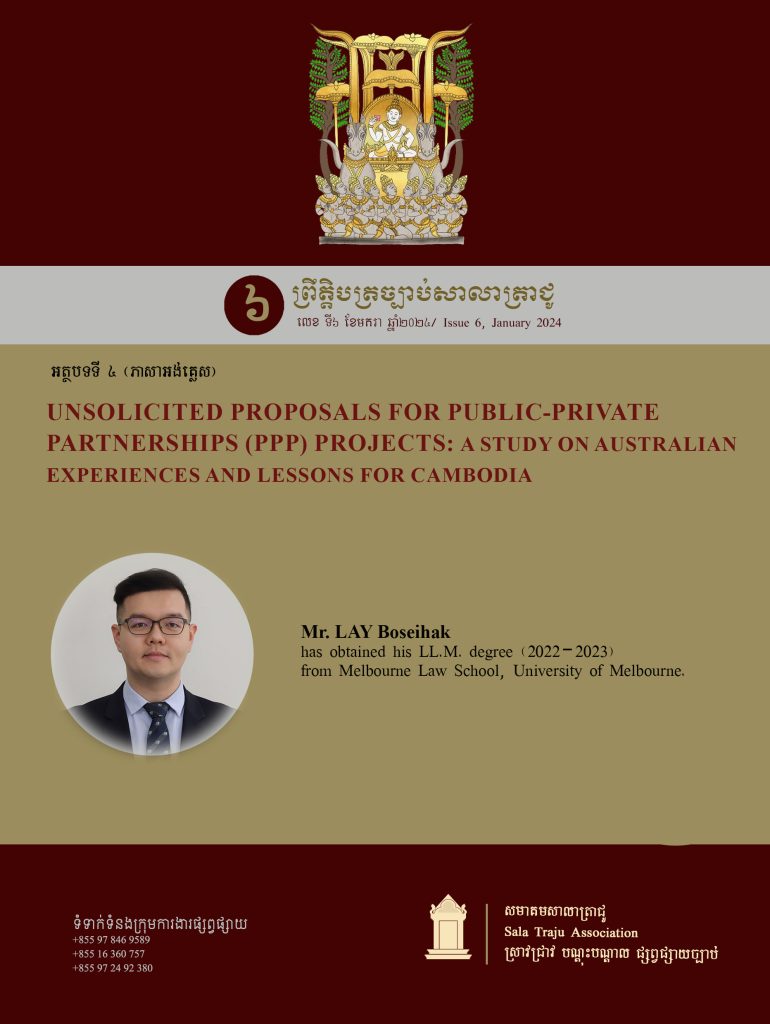
ABSTRACT
Public-Private Partnership (‘PPP’) projects serve as the best alternative to traditional project procurement for financing infrastructure in developing nations, including Cambodia. It has been generally recognized that there are two types of PPP projects: solicited proposals and unsolicited proposals (“USPs”). While the former refers to the PPP projects that are initiated by the government, the latter serves as an alternative option where the private sector, rather than the government, takes a leading role in identifying, developing, operating, and/or maintaining the project. Adopting USPs for PPP provides not only benefits but also raises certain challenges, particularly when the USPs are not managed and used with caution under proper legal and institutional mechanisms. In late 2021, the Cambodian Law on Public-Private Partnerships was promulgated, signifying a new PPP regime for the country. The USP framework is comprehensively documented. In this Article, the Author examines the USP framework under this new regime and makes comparative studies to the USP regimes in New South Wales and Victoria states of Australia, with the ultimate purpose of delivering practical lessons to Cambodia.
